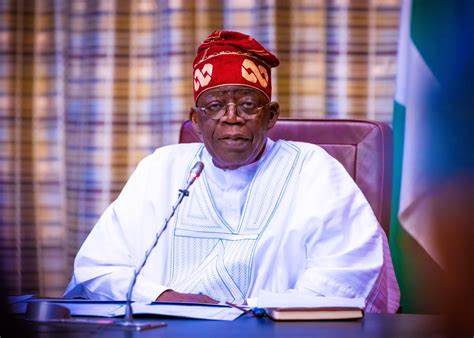ABUJA — As Nigeria edges closer to the 2027 general elections, deepening cracks within the Peoples Democratic Party (PDP) are becoming increasingly visible. Amid internal disarray and a wave of defections, the opposition party has denied involvement in a growing coalition movement aimed at unseating President Bola Tinubu, a move that has drawn harsh criticism from the ruling All Progressives Congress (APC).
In a statement released Wednesday, PDP’s National Publicity Secretary, Debo Ologunagba, refuted claims that the party had formally endorsed the coalition being led by the African Democratic Congress (ADC). The clarification comes as multiple media reports suggested the PDP was aligning with the ADC and other opposition parties to challenge the APC’s dominance in 2027.
“The PDP has not taken any official position on the issue of the coalition,” Ologunagba said.
“Our focus remains on rebuilding our internal structure and preparing for the upcoming National Convention.”
This statement comes on the heels of a prolonged leadership dispute within the PDP, which was only recently resolved in favour of Samuel Anyanwu during the party’s 100th National Executive Committee (NEC) meeting on Monday.
High-Profile Defections Deepen PDP’s Crisis
Despite leadership claims of unity, the PDP continues to bleed members. Prominent figures, including Atiku Abubakar, David Mark, and Sule Lamido, have thrown their support behind the ADC-led coalition, calling on Nigerians to embrace the new platform.
At a recent strategy meeting held at Transcorp Hilton, Abuja, the coalition officially adopted the ADC as its platform for 2027, with David Mark appointed National Chairman and Rauf Aregbesola named National Secretary. The move signals a clear challenge to PDP leadership and has added to the party’s internal woes.
In response, PDP Acting National Chairman Umar Damagum warned that disciplinary action would be taken against any member supporting external political arrangements without formal approval.
APC Hits Back: “A Coalition of the Desperate”
The APC has not held back in its response. In a strongly worded statement, APC National Publicity Secretary Felix Morka described the coalition as a “gathering of political opportunists.”
“It was an unveiling of a coalition of hoaxers… a roll call of Nigeria’s me-or-nothing politicians,” Morka said.
“They are desperate to claw their way back to power under the pretense of patriotism.”
Morka accused the coalition leaders of being more interested in power and patronage than genuine national progress, stating that the APC remains focused on national development under President Tinubu’s Renewed Hope Agenda. Bayo Onanuga President Bola Tinubu’s special adviser on information and strategy, early dismissed the newly formed opposition coalition, describing its members as power-hungry politicians united solely by their disdain for Tinubu.
Voices from Across the Political Divide
Former Minister of Transportation Rotimi Amaechi also weighed in, urging Nigerians to take action rather than expect miracles from the political class.
“The only way you can stop Tinubu from being president in 2027 is to run an election of Nigerians versus the bandits,” Amaechi said during a public event in Abuja.
“You sit at home and grumble. You made yourself helpless, not the elites.”
Peter Obi, the former Labour Party presidential candidate, reaffirmed his support for the ADC-led coalition, calling it a product of “deep reflection” and a path toward “competent and compassionate leadership.”
As the 2027 elections approach, Nigeria’s political landscape appears increasingly polarized. While the ruling APC consolidates its grip, the opposition appears fragmented, with the PDP struggling to maintain unity and control amid rising defections and coalition controversies.
For now, APC leaders remain confident that the disunity among their challengers will only strengthen their chances for victory in 2027.



